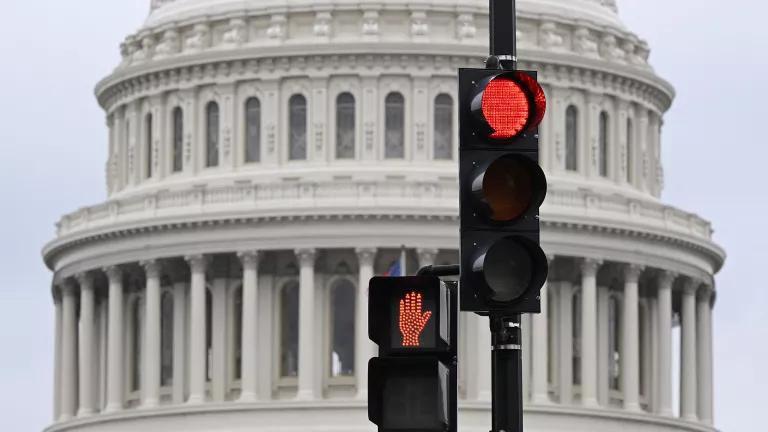NJ Nuclear Issue: Assembly Speaker Bests Chris Christie

In a startling turn of events, Assembly Speaker Vincent Prieto just refused to advance a rushed bill that would have subsidized currently thriving New Jersey nuclear plants indefinitely, to the tune of $300 million-a-year. The complex bailout legislation was only introduced on December 14th and barreled through legislative committees in the waning days of the Christie administration.
The bold move to block consideration of the measure is a victory for good governance and provides Governor-elect Phil Murphy with the opportunity he deserves to preside over a comprehensive Energy Master Plan that will dramatically increase investment in energy efficiency and solar power and spearhead a new offshore wind industry in New Jersey while keeping the state’s nuclear plants running.
We learned late yesterday that Speaker Prieto listened to the pleas from thousands of NJ consumers, businesses, and numerous editorials to slow down and carefully study the issue. This means that if subsidies are in fact needed, the state can take the necessary time to do them right to protect energy customers, plant employees, and the communities relying on tax revenues from the facilities. Prieto’s decision was a blow to lame-duck Gov. Chris Christie who had promised to sign the bill being pushed by PSEG, owner of the aging Salem and Hope Creek Generating Stations along the Delaware River. If the legislation had passed, the $300 million annual bailout would have increased the electricity bills of every New Jersey customer.
As NRDC outlined in our recent issue brief, other states are taking steps to avoid the abrupt closure of nuclear plants that can no longer compete in the marketplace in order to avoid harm to workers, communities and the environment. Such measures may or may not include financial support for the plants. In California, the plant owners, employees and environmental groups agreed to a 10-year transition without subsidies. In Connecticut, the state’s utility regulator determined that the nuclear plant in question was profitable through 2035 and declined to authorize a subsidy. New York and Illinois adopted subsidies in connection with commitments to scale up energy efficiency and truly clean resources like wind and solar to replace electricity generation from the nuclear plants, and they narrowly tailored the financial support to protect customers from overpaying for the benefits the plants provide.
The Salem and Hope Creek plants are not in financial distress, and won’t be for the next two years at least. Elsewhere in the country, costly and aging nuclear plants are struggling to compete with cheaper electricity generation alternatives like energy efficiency, renewable resources, and polluting natural gas.
If that happens in New Jersey, Governor-elect Murphy, who will be sworn into office on January 16th, and the incoming legislature have plenty of time to craft a smart, tailored plan to keep the nuclear plants going, and to address the flaws in the Christie bill that received scathing media criticism and pushback from myriad stakeholders, including many who support keeping the plants open.
Such a plan should:
- Require that any financial support be predicated on a clear showing of financial distress—the plant owners have to open their books to state regulators;
- Narrowly tailor any support, for example, adjusting it to reflect wholesale market indices and increased income to the plants associated with New Jersey’s expected reentry to the Regional Greenhouse Gas Initiative;
- Time-limit any support, because the purpose is to manage a transition, not support uneconomical plants indefinitely;
- Sufficiently scale up energy efficiency and renewable energy so that these truly clean resources can replace the nuclear plants when they close;
- Commit to a plan to retain employees for the long process of decommissioning plants when they close, train them for positions elsewhere in the company, or provide severance packages;
- Support communities that depend on nuclear plants for a substantial portion of their tax base with a glide path, providing time to develop strategies to attract new businesses and investment; and
- Require plant owners to improve safety by expediting the transfer of spent nuclear fuel rods from cooling pools to safer dry cask storage, as a condition on any financial support. (More on this in a future blog.)
New Jersey can now turn its attention to creating the policy framework that will drive investment in truly clean resources like efficiency, wind, and solar that will enable the state to meet its goal of reducing carbon pollution 80 percent by 2050, and to consider the role of nuclear power within that context.
The state can craft a comprehensive energy plan including a continued role for nuclear power that not only is informed by the best practices of other states, but sets a new model for the nation to follow. The Murphy administration now has the opportunity to do just that.



